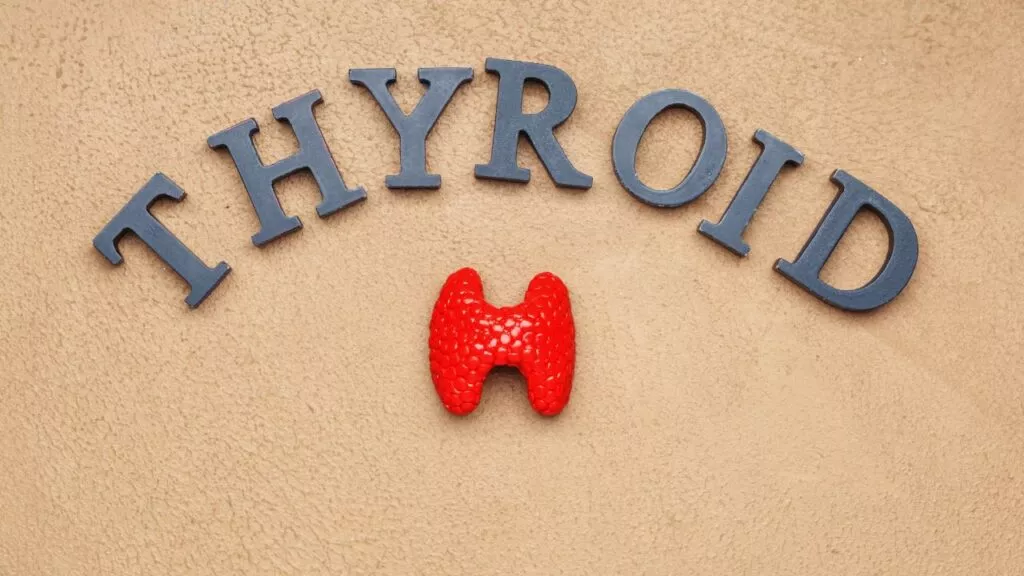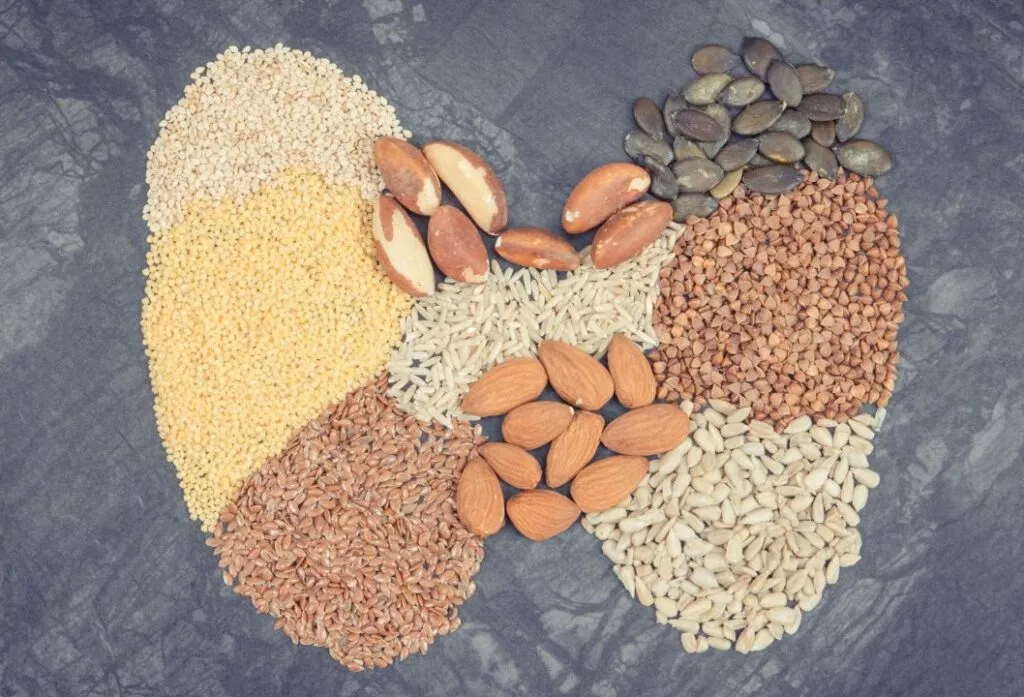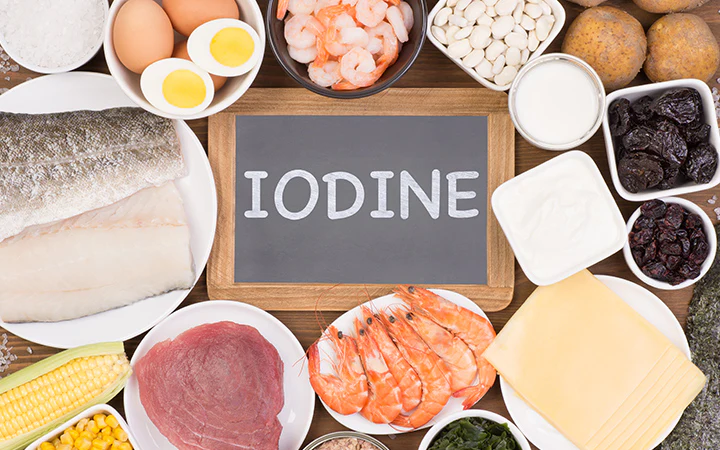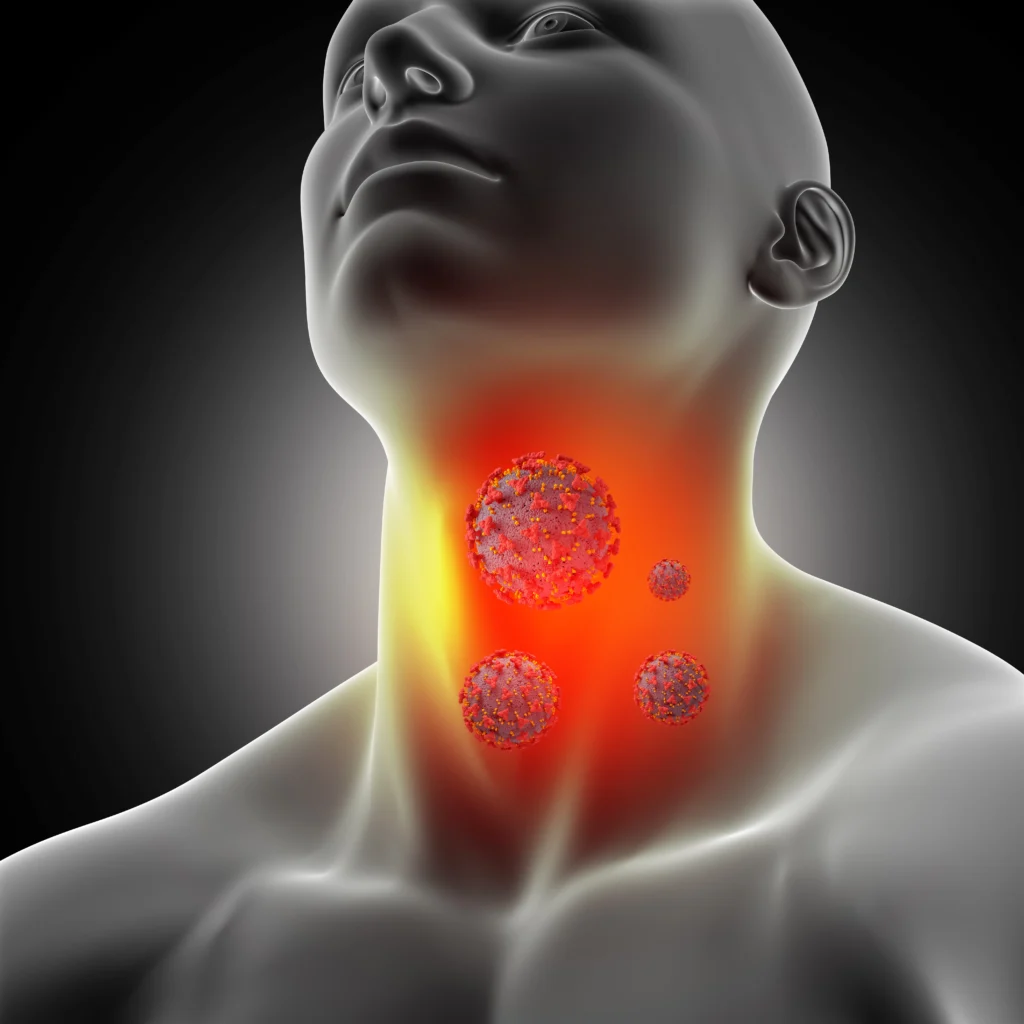Hashimoto’s disease also called Hashimoto’s Thyroiditis is an autoimmune condition wherein the immune system mistakenly attacks its own cells of Thyroid glands. The butterfly-shaped thyroid gland, located in the front of your neck, helps control your metabolism by producing thyroid hormones and maintaining the equilibrium of other hormones.

How does it develop?
It starts with our immune system mistakenly treating our thyroid gland as a threat, due to genetic or several environmental factors, followed by it producing antibodies against them. Over time, these antibodies attack and damage the thyroid gland causing underproduction of thyroid hormones. As the thyroid gland gets damaged, it can’t make enough hormones, causing chronic inflammation and eventually leading to a condition called hypothyroidism or an underactive thyroid.

Hypothyroidism generally attacks our metabolism. It slows down our metabolism causing a drop in BMR (Basal Metabolic Rate) leading to some symptoms like–
- Fatigue
- Malaise
- Weight gain
- Cold intolerances
- Constipation
- Dry skin and hair
- Hoarseness in the voice
- Joint paint
- Depression
- Slightly enlarged thyroid gland.
Because these symptoms can be subtle and resemble other conditions, Hashimoto’s thyroiditis is often misdiagnosed or underdiagnosed.
Diagnosing Hashimoto's disease typically involves a combination of blood tests, clinical evaluation, and an Ultrasound test.
Diagnosing Hashimoto’s disease typically involves a combination of blood tests, clinical evaluation, and an Ultrasound test.
- TSH levels: stands for Thyroid Stimulating hormone. This is checked via a blood test. Elevated TSH levels indicate that the thyroid is not producing enough hormones.
- Free T4: also called thyroxine if low, confirms hypothyroidism.
- Thyroid antibodies: The presence of thyroid peroxidase (TPO) antibodies or thyroglobulin antibodies suggests Hashimoto’s disease.
- In some cases, a thyroid ultrasound may also be performed to assess its size, structure, and presence of nodules.

Who is at risk?
- Gender:- Usually, women are seven times more likely to develop the disease, and Hashimoto’s thyroiditis can sometimes onset during pregnancy.
- Age:- Most cases occur between the ages of 40 and 60, although it can also be seen in younger individuals.
- Heredity: It may run into the family. If your first-degree relative has it, you are more prone.
- Autoimmune diseases:- such as rheumatoid arthritis and type 1 diabetes, increase the risk of developing Hashimoto’s thyroiditis. Additionally, having this condition heightens the likelihood of other autoimmune disorders as well.
Dietary Management for Hashimoto’s:-

Anti-Inflammatory Diet: Inflammation may be a driving force behind Hashimoto’s thyroiditis. Therefore, an anti-inflammatory diet is beneficial. An anti-inflammatory diet focuses on consuming foods that help reduce inflammation and avoiding those that can trigger or worsen it.
An anti-inflammatory diet rich in fruits, vegetables, whole grains, lean proteins, and healthy fats can help reduce inflammation and support overall health. Foods such as berries, leafy greens, fatty fish, nuts, and seeds are excellent choices. One may also avoid wheat and milk as gluten and lactose also exhibit inflammatory properties.
Adequate Selenium Intake

Selenium is a trace mineral that plays a crucial role in thyroid hormone metabolism. Studies have shown that selenium supplementation can reduce thyroid antibodies and improve thyroid function. Brazil nuts, seafood, eggs, and sunflower seeds are good sources of selenium.
Balanced Iodine Intake

Iodine balance is very crucial in Hashimoto’s. Iodine is essential for thyroid hormone production, but too much or too little iodine can exacerbate thyroid problems. Sources like some dairy products, seaweeds, and iodized salt, are to be taken, but avoid excess.
Avoid Goitrogens

Goitrogens are substances that can interfere with thyroid function and are found in foods like cruciferous vegetables (e.g., broccoli, cauliflower, cabbage), soy products, and certain fruits and vegetables. Cooking these foods can reduce their goitrogenic effect, making them safer to consume in moderation.
Gut health:-

A healthy gut microbiome helps regulate the immune system and prevent excessive immune responses that can lead to autoimmunity. Conversely, a compromised gut barrier, or “leaky gut,” can trigger inflammation and immune responses, exacerbating thyroiditis. Dysbiosis, or an imbalance in gut bacteria, and nutrient absorption issues can also impact thyroid health.
Lifestyle modifications:-

Lifestyle modifications can significantly improve the management of thyroiditis. Regular physical activity, adequate hydration, and stress management techniques such as yoga, meditation, and mindfulness can further enhance overall well-being and reduce inflammation, aiding in better thyroid health.
References:-
- https://www.thyroid.org/hashimotos-thyroiditis/
- https://www.hopkinsmedicine.org/health/conditions-and-diseases/hashimotos-thyroiditis
- https://www.ncbi.nlm.nih.gov/pmc/articles/PMC9101513/
- https://www.btf-thyroid.org/vitamin-d-and-thyroid-disease#:~:text=Does%20vitamin%20D%20or%20its,thyroid
- https://www.ncbi.nlm.nih.gov/pmc/articles/PMC3921055/
- https://www.ncbi.nlm.nih.gov/pmc/articles/PMC7282437/
- https://www.sciencedirect.com/topics/veterinary-science-and-veterinary-medicine/goitrogen
- https://www.medicoverhospitals.in/articles/manage-thyroid-health-through-lifestyle-changes

